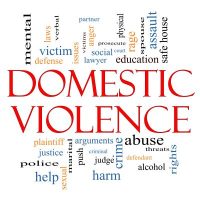Is Domestic Violence a Tort?

A tort is to civil law what a crime is to criminal law. When someone commits a crime, the Crown may bring charges, and if the court finds the defendant guilty, it may impose criminal penalties, such as monetary fines or imprisonment. A tort is a wrongdoing that harms a specific person or entity but does not violate the criminal code. The person injured, physically or financially, by the tort can bring a civil lawsuit. If the plaintiff prevails, the court orders the defendant to repair the harm, such as by paying compensation for the plaintiff’s losses or returning property of which the defendant unlawfully or unjustly deprived the defendant. Divorce cases are not, by nature, tort claims. Couples have the right to dissolve their marriages simply because they no longer wish to be married to each other; the court does not decide that one party is at fault. Despite this, if your spouse caused you physical or financial harm, you may bring a tort claim as part of your divorce case. In other words, you can ask the court to order your spouse to compensate you for the physical or financial harm he or she caused. To find out more about seeking fair compensation when divorcing an abusive spouse, contact a Mississauga family lawyer.
The Family Courts Can Award You Compensation for Your Spouse’s Mistreatment of You During Your Marriage
Canadian law has long recognized that torts can take place within marriage and that the family courts can award compensation to one spouse for the damage caused by his or her tortfeasor spouse. For example, the court can order one spouse to compensate the other for physical assaults and intentional infliction of emotional distress, but until recently, it did not recognize intimate partner violence (IPV) as a separate category of tort. Whereas domestic violence can occur between any two family members, IPV is always directed at one’s current or former spouse, dating partner, or domestic partner.
In the Ahluwalia case, the wife’s lawyers persuaded the court that the husband’s violent and controlling behavior was part of a pattern, and it was not sufficient to compensate her for individual incidents of violence. In 2024, the Supreme Court of Canada issued a ruling in the Ahluwalia case. It outlined outdated stereotypes that have previously made it difficult for survivors of IPV to receive fair compensation. The Court reasoned that the children of relationships marred by IPV suffer harm because of it, even when they are not the targets of physical violence. It also pointed out that the courts have too often sided with respondents who claimed that their spouses were bringing false or exaggerated claims of IPV because the accusers wanted to hide the fact that they were simply using their spouses to get money or Canadian citizenship.
Contact Zagazeta Garcia LLP About Seeking Justice in Divorce
A family lawyer can help you get fair compensation in a divorce case that involves tort claims. Contact Zagazeta Garcia LLP in Mississauga, Ontario to discuss your case.
Source:
westcoastleaf.org/work/ahluwalia-v-ahluwalia-2024/#:~:text=In%20this%20case%2C%20Ms.,harms%20of%20patterns%20of%20abuse.
